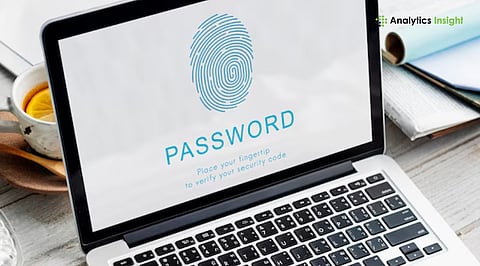

Passwordless authentication dramatically improves security by eliminating phishing risk.
Major firms like Microsoft and Yubico are driving widespread adoption of passkeys and biometric-based login.
Enterprises and consumers increasingly trust modern authentication methods over traditional passwords.
Passwordless authentication is quickly becoming the standard. Companies such as Microsoft are reporting nearly a million passkey registrations daily, signaling rapid adoption. Key advantages include phishing resistance, because passkeys rely on cryptographic public-key methods rather than user-typed secret strings.
Passwordless authentication is being adopted faster by companies looking for more effective methods of user account protection that do not rely on passwords. The increase in cyberattacks, credential theft, and problems with verification through texts has made businesses look for more secure means of granting access.
Also Read: Top 10 Best Password Managers in 2025 for Maximum Online Security
Modern authentication technologies mainly depend on biometrics to provide users with a seamless and secure experience, such as facial recognition and fingerprints. Microsoft’s Windows Hello, which allows users to authenticate with face, fingerprint, or PIN, has already captured more than 99 percent of users who sign in to their Microsoft accounts.
Among others, hardware-based systems like YubiKeys are becoming more common in enterprises. They can be easily integrated with Microsoft Entra ID, which allows organizations to start using phishing-resistant multi-factor authentication immediately.
There is a growing consensus across the tech world that passkeys and FIDO-based authentication are the future. Industry experts suggest that passkeys could become the leading method of authentication by 2027.
Market analysts expect the passwordless authentication market to surpass $8.9 billion by 2033, fueled by increasing demand for biometrics and modern digital identity security.
Awareness of passkeys remains uneven, even though adoption is growing. In Yubico’s 2025 Global State of Authentication Survey, 45 percent of non-users globally said they had never heard of passkeys. This education gap is a major hurdle, even as technology vendors improve access.
Yubico has scaled its YubiKey as a Service to many more countries to meet demand for hardware-based, phishing-resistant authentication.
The transition to password-free systems offers a lot of advantages, as they are relatively easier to use. Traditional password systems still suffer in terms of security, as phishing and credential theft remain huge risks. Passkeys use public-key cryptography, keeping private keys on the user’s device, making sure that large-scale credential leaks do not happen.
These solutions make the zero-trust approach more robust as they merge secure accessibility with contemporary identity management. Yubico’s tools, for example, allow organizations to securely onboard their employees with pre-registered hardware keys.
Earlier security relied on complex passwords and text-based MFA. These measures had weaknesses such as phishing, brute-force attacks, and wrongly entered passwords by users. Today, passwordless authentication is simple, based on passkeys and biometrics, and still protected by stronger mechanisms.
Passkeys typically offer three times higher login success rates (Microsoft says 98 percent success with passkeys vs. 32 percent with passwords). Factors such as faster login, fewer support calls, and reduced risk make this upgrade compelling.
Also Read: End of Passwords? Why the 16 Billion Login Breach Demands a Passwordless Future
Passwordless authentication is shaping a more secure and efficient future for digital interactions, supported by strong adoption across enterprises and consumers. The method's potential to eliminate phishing and increase login success rates makes it an upgrade, bound to replace the old verification models quickly.
The transition from passwords is expected to increase as biometrics and passkeys keep advancing. This evolution is expected to provide better user interfaces with higher security, creating a digital space with lower risk.
1. What is the future of passwordless authentication?
New passwordless technologies are showing clear benefits. They are more secure, cost-effective, and user-friendly than traditional passwords. Many users and organizations are still new to passwordless authentication. So, the market will grow.
2. Why is 2FA no longer safe?
One of the biggest security flaws with SMS 2FA is the possibility of SMS interception. This occurs when a malicious actor intercepts the SMS message containing the verification code.
3. What are the advantages of passwordless authentication?
The benefits of passwordless authentication include enhanced security, improved user experience, and significant operational advantages, making it a superior choice over traditional password-based methods.
4. Why is everyone moving to passkeys?
Passwords are the largest source of breaches, security concerns, and vulnerabilities on the web. And so the goal of passkeys, when that work started around 2015, was to provide a way for stronger credentials to be used instead of traditional passwords.
5. What is replacing 2FA?
Unlike 2FA methods, which require an additional step, passkeys integrate multiple layers of verification into a single action, effectively adding security while enhancing convenience.
